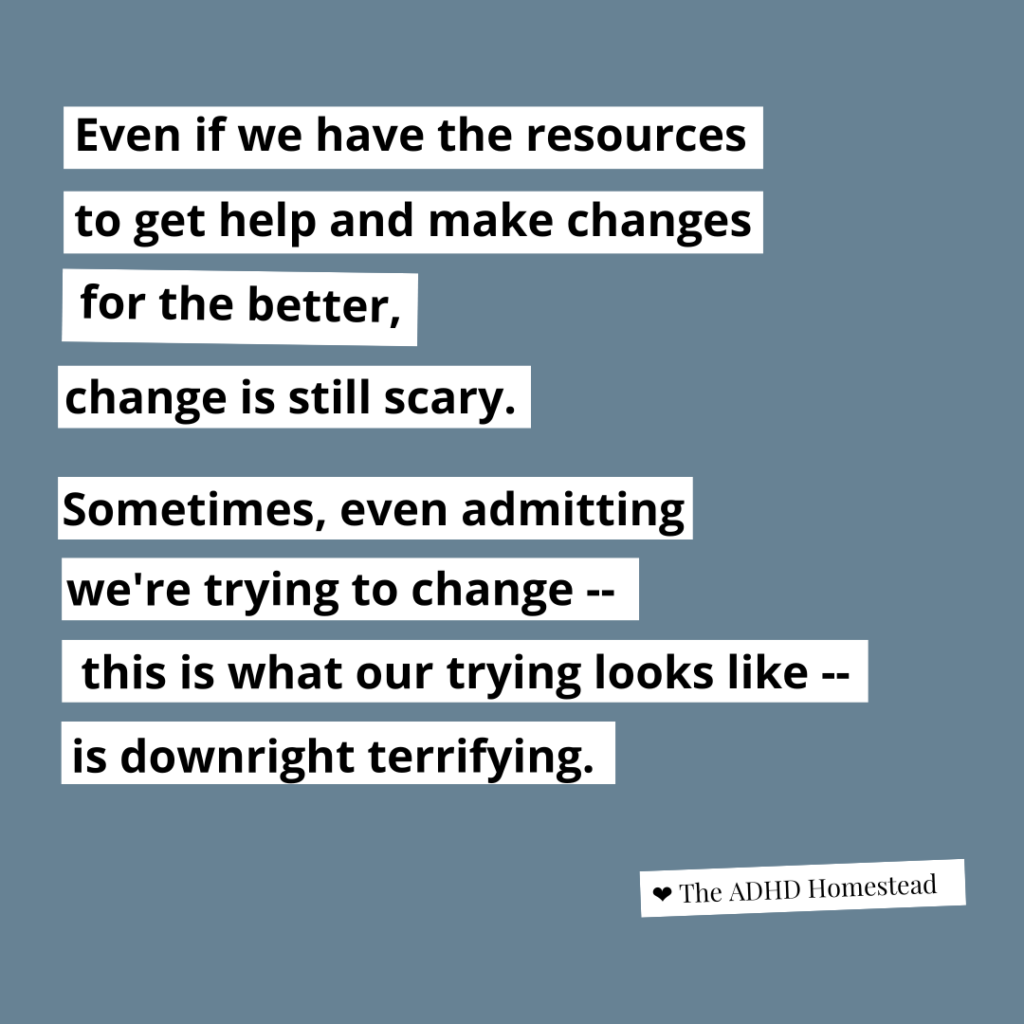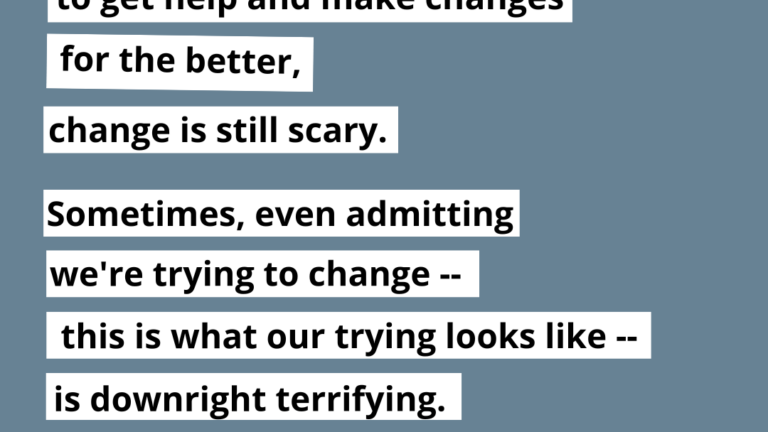Last week, I had corrective eye surgery.
When my husband first suggested this surgery years ago, I waved it off. I gave excuses ranging from, “I don’t want someone messing with my eyes” to “what if I was the only person in history who was incapable of keeping my eye still for the procedure?”
Really, it was a threat to my identity. Having exceptionally poor vision is part of who I am. It’s something I share with my dad. It’s a fashion statement. It defines how I see the world around me. It’s something that makes an impression and sets me apart. It’s part of the very fabric of my reality.
The same could be said for ADHD.
This relationship to identity can be terribly difficult for others to understand. My husband, born with 20/10 vision, can’t imagine why I wouldn’t want to be able to see like everyone else. Why I’d fear waking up in the morning and being able to see everything in my bedroom.
For those on the outside, refusal to treat crippling ADHD symptoms can seem like madness.

Despite our impairments from ADHD, treating and managing it can, to some, feel like a threat to our identity. It requires us to shed our skin, to give up membership in some kind of weird club. Many people — myself included — fear starting ADHD medication for the first time because we worry we’ll lose a part of ourselves we actually like.
Just because we have the means to improve our lives doesn’t mean the choice is always easy. Altering a fundamental piece of our identity is scary. Any change is scary. Even though removing a functional impairment should feel like a 100% win, it’s not always.
Because my glasses make everything appear smaller, I have trouble seeing tiny things. I almost always ask my husband to remove splinters for me. I like that. I don’t usually accept much help or care, but it’s nice to be cared for every once in a while.
Maybe some of us cling to the impairments wrought upon us by ADHD, too.
Maybe it’s easier for us to say “I have no social skills” or “I don’t care about stupid paperwork” or “I’m just a terrible friend.” Anything else would force us to admit we’re working hard — and still failing.
Sometimes our ADHD can provide a certain level of security. Others know what to expect from us. We know what to expect from ourselves.
But just because we’ve taught ourselves — or been told by others — this is how we fit into the world doesn’t mean we’re stuck here. Just because change is scary doesn’t mean we shouldn’t try. And if we’re disappointed in ourselves today, it’s okay to admit we’re trying.
Honestly, my adjustment to ADHD medication felt a lot more natural than my recovery from this surgery: more like putting on a pair of glasses for the first time. I’m trying to take the long view, though, tough as that may be for someone like me. In both cases, it’s a leap that leads to long-term quality of life improvement.
And if I can give that to myself…why not try?
Image added February 8, 2023.
Hey there! Are you enjoying The ADHD Homestead?
Here's the thing: I don't like ads. I don't want to sell your attention to an advertising service run by the world's biggest data mining company. I also value my integrity and my readers' trust above all, which means I accept very few sponsorships/partnerships.
So I'm asking for your support directly. For the cost of one cup of coffee, you can help keep this site unbiased and ad-free.
Below you will find two buttons. The first lets you join our crew of Patreon pals and pledge monthly support for my work. Patrons also have access to my Audioblogs podcast. The second takes you to a simple donation page to pledge one-time or recurring support for The ADHD Homestead, no frills, no strings. Do whichever feels best for you!

